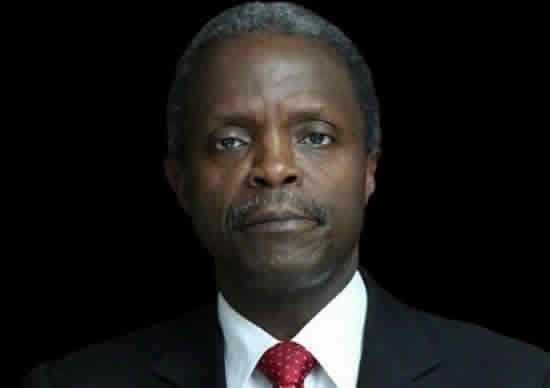Nigeria Needs Sustainable Food System As Poverty Situation Deepens Daily – VP
Prof. Yemi Osinbajo, Nigeria’s Vice President, has indicated that Nigeria’s food insecurity is a growing concern.

Nigeria’s Vice-President, Yemi Osinbajo, has said the country’s poverty situation has deepened due to economic fallout and the devastation from the COVID-19 pandemic.
Osinbajo said the need to double down on a sustainable food system could not be direr than now that the country is currently faced with a population boom.
“The issue of developing a sustainable food system has never been more urgent and more existential. In our case, perhaps more so than in many other countries,” he said at a virtual dialogue on the United Nations food systems summit on Tuesday.
“Why? We are faced with population growth that exceeds growth figures handsomely. Poverty has deepened, particularly in the wake of the COVID-19 pandemic and its economic fallout.”
“Malnutrition and unhealthy dietary practices create unique threats to health and productivity for generation after generation.”
The UN organised the dialogue to raise global awareness and shape commitments towards mobilising food systems to address hunger and reduce diet-related diseases.
Before the pandemic, nearly half of Nigeria’s 200 million people were living on less than $1.90 a day, surpassing India as the world’s highest number of poor citizens, according to the World Poverty Clock in 2019.
Nigeria’s National Bureau of Statistics (NBS), in its “2019 Poverty and Inequality in Nigeria” report, said that 40 per cent of the total population, or almost 83 million people, live below the country’s poverty line of N137,430 ($381.75) per year.
An updated data by the World Bank estimated seven million more people would become poor in the West African nation by the end of 2020 in the wake of the pandemic and the second recession in four years.
Osinbajo noted that it had become a significant challenge, producing enough food for a rapidly growing population, given the changes required to modernise farming practices, mechanisation, and reduction of post-harvest losses.
A 2020 projection by a US-based research firm, the Lancet, says Nigeria will become the world’s third and second-largest population by 2050 and 2100, respectively.
The VP said there was a need to tackle food insecurity for the rapidly growing population by ensuring environmentally sustainable production practices, creating empowering jobs and livelihoods, and building capacities to provide sustainable and healthy food systems.
“These issues require expertise and experience, and also, the views of those who will literally be at the receiving end of these plans,” he said.
“In other words, at these dialogues, we don’t just want to hear the experts; we want to hear those at the receiving end for whom all these plans are being made – the people of the country across all strata of society.”
“This brings me to the matter of ensuring that these dialogues are accessible to all, meaning that they do not become one for experts essentially ‘talking shop.’”
Zainab Ahmed, the country’s Minister for Finance, Budget and National Planning, said the Nigerian government had shown commitment towards malnutrition eradication through the adoption and domestication of policies and significant strategic plans, which emphasise increased reliance on domestic funding.
“This commitment is happening through a well-coordinated multi-sectoral and multi-stakeholder approach (comprising government, CSOs, private sector and donors), and are backed by sustained high-level political commitment.”
“These include the National Strategic Plan of Action for Nutrition, the National Policy on Food and Nutrition, the innovative National Social Investment Programme (which includes the Home-Grown School Feeding Programme), the Basic Health Care Provision Fund, and the National Council on Nutrition, and the development of various food and nutrition sector plans,” she said.
Ahmed said the dialogue was aimed at identifying food systems challenges from multiple perspectives.
Recipe for unrest
In 2019, the World Food Programme in its “Global Report on Food Crises” listed Nigeria as one of the 10 countries that constituted the world’s worst food crisis.
The majority of people suffering from acute food insecurity in 2019 were in countries affected by conflict, climate change, and economic crisis.
Decade-long Boko Haram insurgency and farmers-herders clashes over grazing rights in Nigeria have contributed to food insecurity asides from economic fallout from a dip in oil prices.
In 2020, falling government revenues and lockdown-related restrictions dealt a blow to food supplies, resulting in high food price rises that some Nigerians could not afford.
Though the government launched some fiscal stimulus packages to cushion the pandemic’s effects, some still fear the country’s extreme poverty level exacerbates the risks of unrest, with the crime rate due to unemployment steeping high daily.
Support Our Journalism
There are millions of ordinary people affected by conflict in Africa whose stories are missing in the mainstream media. HumAngle is determined to tell those challenging and under-reported stories, hoping that the people impacted by these conflicts will find the safety and security they deserve.
To ensure that we continue to provide public service coverage, we have a small favour to ask you. We want you to be part of our journalistic endeavour by contributing a token to us.
Your donation will further promote a robust, free, and independent media.
Donate HereStay Closer To The Stories That Matter




